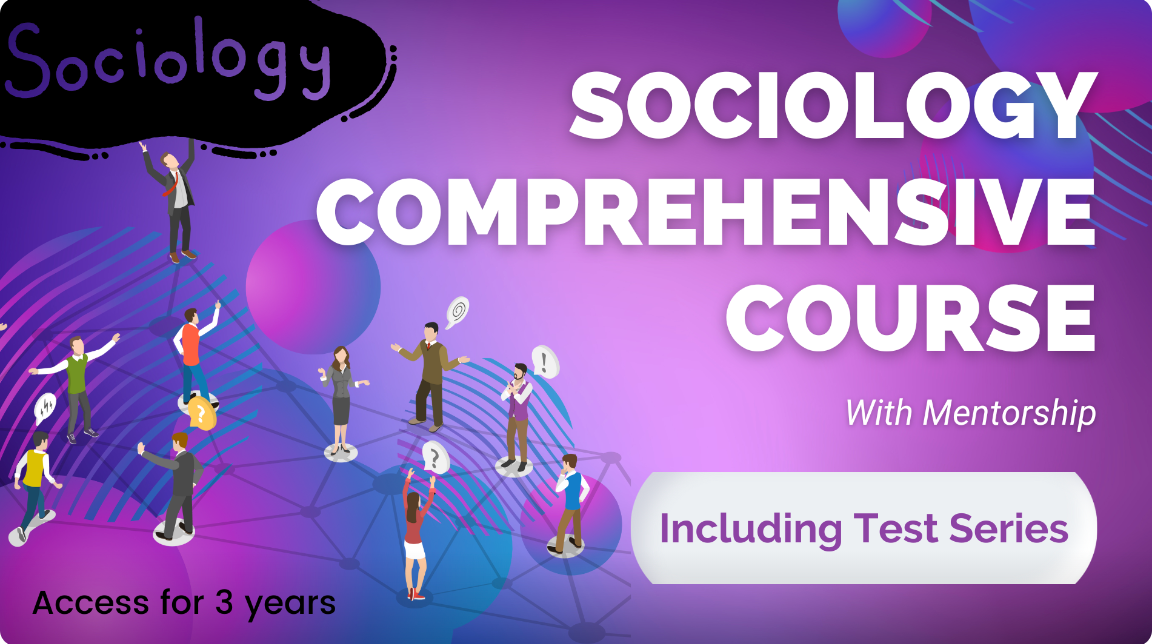Questions
- Write a Sociological perspective on Child labour. (10 Marks)
- Has the constitutional commitment to ensure equal citizenship been effectively realized for all members of Indian society today? (10 Marks)
Download Model Structures PDF
Model Structures
Q1. Write a Sociological perspective on Child labour. (10 Marks)
Introduction
- Child labour refers to the use of children as a source of labour while depriving them of their fundamental rights in the process. Such rights include the opportunity to enjoy their childhood, attend school regularly, have peace of mind, and live a dignified life.
Main Body
Child labour is caused by several factors. Some of them include:
- Poverty: Children who come from poor families may be forced to work to support household income and support kinship groups. Such a practice is a common phenomenon in poverty-stricken regions.
- Illiteracy: Illiterate people view education as a preserve of the privileged in society. They will therefore not provide support to children so that they can go to school and build solid foundations for future success.
- The high cost of education: Quality education is expensive. Parents let their children stay at home because there is a lack of money to send them to school, parents opt to have them working as unskilled labourers to help support the family.
- Pull factors: Huge demand for unskilled labourers and cheap wages to a child making an attractive option for many greedy employers.
- Bonded labour: many a time child labour is the payback for debt taken by the bonded family from their moneylenders.
Child labour has several negative impacts. Some of them include:
- Loss of Quality childhood: It leads to loss of quality childhood and hampers their growth and development. A child forced to work will miss many of the good things associated with childhood.
- Health issues: Child labour can also lead to health complications due to undernourishment and poor working conditions.
- Sexual exploitation: Child labour makes them vulnerable to sexual exploitation due to unorganized nature of employment.
- Mental trauma: Issues such as bullying, sexual exploitation, and unfavourable working hours may result in mental trauma in these children. Child labour may also result in the lack of emotional growth and thus insensitivity.
- Illiteracy: Children that are employed do not have the time to go to school. The lack of education and illiteracy makes them individuals with limited opportunities as far as employment is concerned.
Conclusion
- Child labour is not just an affront to the rights of a child but also a symbol of a society that has lost its way. We should, therefore, all strive to ensure that the fundamental rights of children are protected and that they are accorded the opportunity to go after their dreams and aspirations.
Q2. Has the constitutional commitment to ensure equal citizenship been effectively realized for all members of Indian society today? (10 Marks)
Introduction
- Talcott Parsons says that citizenship is a measure of modernization of society because it is based on values of universalism and achievement.
Main Body
Delivery of constitutional promise of equal citizenship:
- By adopting the adult franchise, every citizen gets equal political right to exercise his/her voting right
- Civic citizenship is realized in by giving fundamental rights like freedom of speech in Article 19 of the constitution
- Reservation of seats for the weaker sections to give them equal opportunity to hold any office in the country. Foe eg: Draupadi Murmu, tribal woman becoming head of state of India.
Non-Delivery of the constitutional promise of equal citizenship:
- Gail Omvedt says that citizenship in India is paradoxical as theoretically it grants equal rights but caste dynamics make Dalit lesser citizens.
- Feminists argue that women are treated as second-class citizens and do not have enough rights.
- Marxist argue that there are only two citizenships- Haves and have nots and both are treated unequally and stand as two poles.
Conclusion
- TH Marshall defined citizenship as political, civic, and social. India has performed well in the first two but we have a long way to go to get parity in social citizenship.

